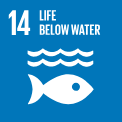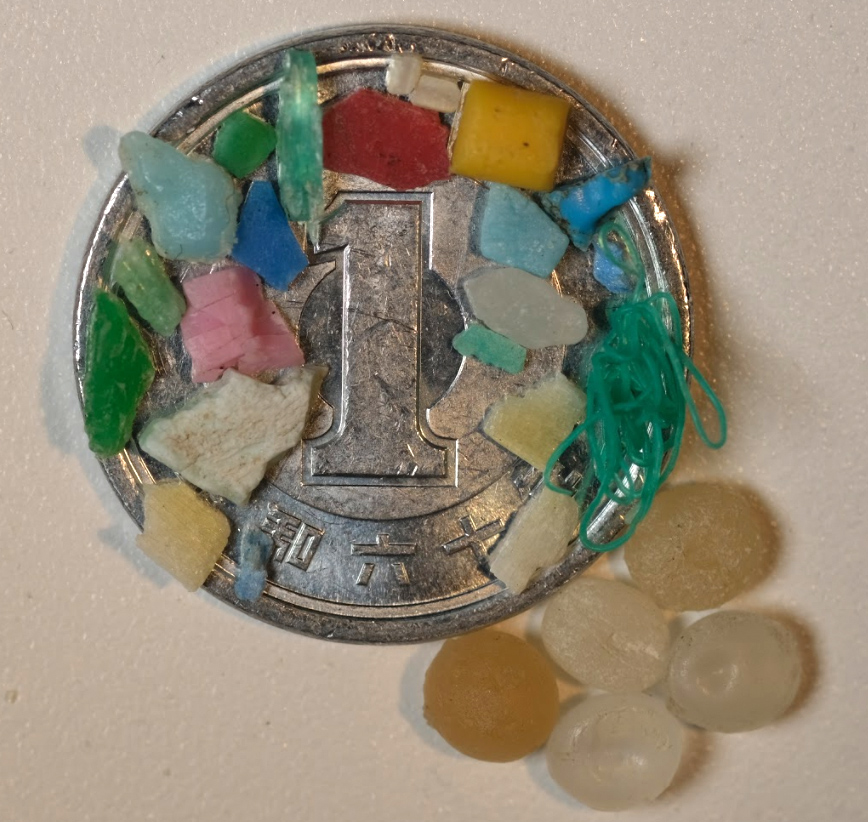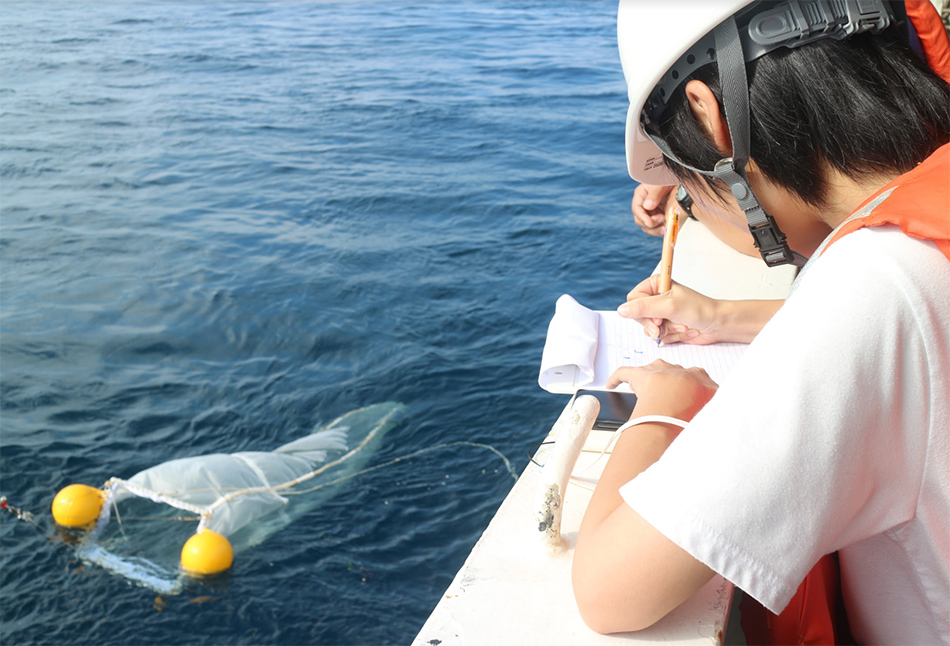Ocean monitoring and innovative technology development to tackle marine plastic pollution

SDG14.1 “by 2025, prevent and significantly reduce marine pollution of all kinds...”, has official indicators to measure the achievement of the goal, among which is "density of marine plastics."
Once introduced in the sea, plastics cannot be decomposed and will remain there for centuries or even millennia. They are transported by oceanic currents, spread in the world ocean and impacting economy of small island countries and threatening marine life at a global scale. Plastics disintegrated into a small pieces, microplastics, functions as carriers of toxic chemical substances. Microplastics are easily eaten by plankton, fish and benthic organisms such as corals, and through consumption of sea foods, may threaten human health. However, behaviour of marine plastics is still largely unknown.
JAMSTEC is investigating distribution and accumulation processes of marine plastics from the surface to deepsea and their impacts on marine ecosystems through ship board observation and laboratory analysis. As speeding up in sample analysis in fully quantitative manner is crucial to understand marine plastics, we also are developing innovative microplastics measurement systems. Funded by New Energy and Industrial Technology Development Organization (NEDO), we are developping different types of novel marine biodegradable plastics, each specialized in degradability under different marine environments. We further contribute to establish a novel universal standard method for assessing marine biodegradability of plastics in collaboration with universities and research institutes.


Research Institute for Global Change (RIGC)
Marine Biodiversity and Environmental Assessment Research Center (BioEnv)
Research Institute for Global Change (RIGC)
Earth Surface System Research Center (ESS)
Institute for Extra-cutting-edge Science and Technology Avant-garde Research (X-star)
Super-cutting-edge Grand and Advanced Research (SUGAR) Program
Institute for Extra-cutting-edge Science and Technology Avant-garde Research (X-star)
Advanced Science-Technology Research (ASTER) Program
Research Institute for Marine Resources Utilization(MRU)
Biogeochemistry Program(BGC)
